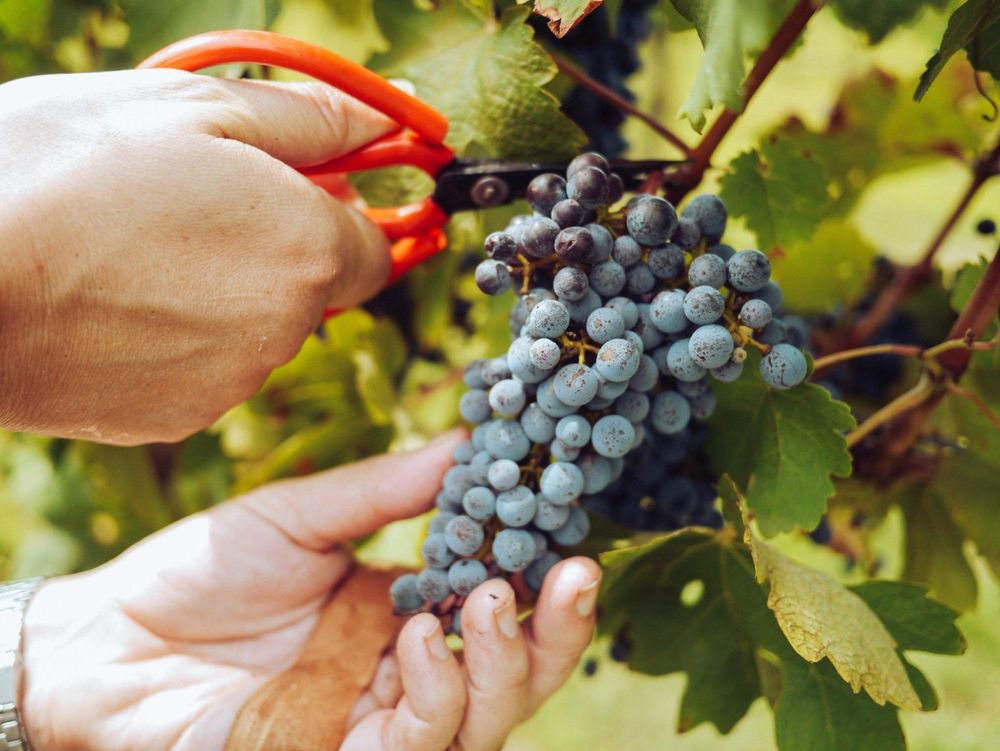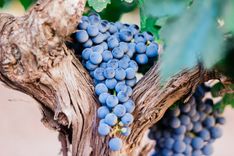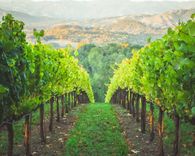
What is a Vintner and How Do You Become One?
When you pull the cork on a bottle of wine, it’s easy to forget the hundreds of hours of labor that has gone into the very bottle you are casually sipping around the dining room table. Teams of skilled individuals have studied for years to create these products for us to enjoy. Not to mention the hard work of the vines to produce exceptional fruit which in turn produces beautiful wine. However, if left to fend by themselves the vines would not be very productive. It takes a trained hand to guide these vines to produce the best possible grapes. So, what is a vintner? A vintner is a master specifically trained in the art of winemaking. This term was originally coined to describe a wine merchant or winegrower. Since the first record of wine production was discovered, around 6,000 BC, vintners have been needed to perfect the process and hone the craft. Over time this profession has evolved to not only sell wine but to manipulate the winemaking process right at the source. Vintners are winemakers specifically focused on estate and vineyard management. Instead of manipulating the wine during production to achieve the desired results, they focus on changing the growing conditions of the vines. This produces fruit with the characteristics they want present in the final product. This exciting winemaking job is only increasing in demand. The latest statistics show there are 77.3 million tons of grapes produced worldwide, which is a 5% year-over-year increase. Of all the grapes harvested 57% are used for wine. As more people become interested in wine culture and in enjoying wine, the number of grapes being harvested is expected to grow. Vintners are the ones who will need to be on-site to oversee the growth, harvest, and wine production. Now that we know a bit about this winemaking job, let’s dig deeper into the responsibilities of this essential role.
What Are The Responsibilities of a Vintner?
If the winery and vineyard workers were the arms and legs of the body, the vintner would be the brain controlling the movements. These individuals lead the winemaking process with a specific focus on the vineyard and grape production. They have their hands in multiple areas but it can be broken down into 2 general categories.
1. Grape Production
Vintners are trained in the ecology of grapevines and vineyard management. They can use techniques to produce sweeter grapes or grapes with a higher mineral presence. They achieve this through pruning, fertilization, irrigation–or lack thereof. For example, pruning will force the vine to work to produce higher quality grapes or removing buds to cause the vine to produce sweeter grapes. Reducing the irrigation will cause the vines to struggle, this means they will push their roots deeper into the soil, pulling in more mineral content and creating a more robust vine. Vintners are also charged with the task of maintenance throughout the growing season. This includes how to effectively manage pests and remove debris from the vineyard floor to reduce the chance of fungus being transferred to the vine. Vintners will also oversee the harvest. Grapes must be picked within a small window of time to ensure they are the exact ripeness needed for the wine being produced. During the winter months, vines need to be covered, buried, or otherwise protected. Again, this responsibility falls onto the shoulders of the winemaker.
2. Wine Production
Without a vintner, there would be no wine. Or at least not a great wine. In addition to vineyard maintenance, vintners are also responsible for guiding the winemaking process. This includes overseeing,
- Grape Processing
- Fermentation
- Filtration
- Aging and Bottling
- Sales
Vintners possess the knowledge to manipulate grapes on the vine, but they also know how to direct the winemaking process to achieve the desired product. This can include changing the length of fermentation, how long the grapes come into skin contact or if any sugars will be added to the wine. This is all dependant on the grapes being used, the style of wine being produced, and the desired characteristics the winemaker wants in the wine. Since each growing season is different, each wine will be different. For example, in particularly hot growing seasons the grapes will naturally have a lower acid and higher sugar content. The vintner will need to adjust how the grapes are fermented to strike a balance between the acid and sugar content in the resulting wine. The knowledge of both sides, at the vineyard and winery level, gives the vintner an advantage because they know how to manipulate the elements across the entire growth and winemaking process. Their unique set of skills can ensure a consistent high-quality wine will be produced year after year.
What’s the Difference between a Winemaker, Vintner, Oenologist?
Many different terms get thrown around when discussing winery jobs. Some of them even seem to be used interchangeably. So let’s untangle the mystery behind each of these winemaking jobs. Simply put, a winemaker refers to someone who produces wine. The means both a vintner and an oenologist are winemakers. Individuals in these roles are both responsible for overseeing the winemaking process. Here is where the roles differ,
Vintner
Is a winemaker who has a focus on the winery estate, the vineyard, and the grapes. They use tools and techniques to manipulate vines to create the grapes with characteristics they desire. In theory, when they oversee winemaking, there will be less manipulation since they have focused on grapes at the source. But wine is a volatile product and therefore some stages of the winemaking process may still need to be altered.
Oenologist
Oenologists are winemakers who have studied the science of wine. Their understanding of biology, genetics, and chemical structures gives them the unique ability to analyze and tweak the wine at various stages. While they may still oversee the vineyard, their focus is on the winemaking operation itself. They achieve the desired product through the manipulation of this process. These terms will continue to be used interchangeably and these roles will always have overlapping responsibilities. However, it is in their education and the way they take charge of altering the final product that makes them different.
How to Become a Vintner
It can seem like a daunting task to break into the world of wine, but once you get started you’ll begin to realize it is a close-knit inclusive community. Since this ancient tradition has been passed down from generations there are different ways of learning the skills needed to become a vintner. Primarily this can be broken down into,
- Formal Education
- Internships or Apprenticeships
Those who choose the formal education pathway will learn about wine in a theory-based setting with lots of co-op opportunities to practice these skills first-hand. These programs come in 2 forms, either a 4-year bachelor’s degree or a 2-year diploma. These programs are typically focused on winemaking, viticulture, or oenology. The curriculum for these programs usually has some overlap. The internship route is hands-on education. There is no rule as to how long you must be an intern or apprentice before you can become a vintner. However, the average individual who takes this route will be a cellar hand for at least 5 years. During this time they will assist with harvest, crushing grapes, barreling, filtering, and every other aspect of wine production. They will also be introduced to inventory and cellar management as well as sales and exports. The length of time it takes could be longer or shorter, depending on your pallet, how easily you grasp the concepts being shown, and the base of knowledge you already have about the industry. Regardless of the path you choose to become a vintner, many people will seek out additional education. These programs focus on high-level business skills to ensure you can run a profitable winery.
Future Wine Growth
The future of wine will be dependant on the dedicated future vintners. The world of wine is becoming more approachable for the everyday consumer. As a result, global wine production is expected to increase, and new growing regions even seeing up to 11% growth. The demand for these winemaking jobs is set to grow alongside. When working on a winery it can be easy to think of just the product you are producing. But every vintner touches thousands of people’s lives with the work they do. It’s through their hard work, expertise, and leadership that people around the world can enjoy these incredible wines. If you are looking to take your career in a direction towards the wine industry, look at the wine jobs available today!
Like this? Here are some other aritlces you may like

How to Become a Winemaker
Do you want to learn to make wine? Winemakers have the techniques and skills required to make this delicious beverage!

How To Get a Job in the Wine Industry
The wine industry is one of the most lucrative industries today. With a variety of jobs available , it's no wonder that people are looking to get involved!

The Different Sommelier Levels and How to Get Them: What They Mean for Your Career
There are many different levels of sommeliers and each level can have an affect on a person’s career. Let’s talk about each of them.